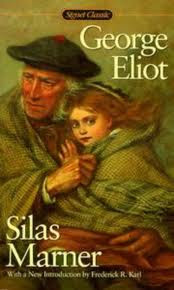Finished The Quiet Little Woman: A Christmas Story by Louisa May Alcott. It's actually a book of three stories, The Quiet Little Woman, Tilly's Christmas, and Rosa's Tale.
In The Quiet Little Woman, Patty is an orphan who is taken in by a family who, while not outwardly cruel to her, take her on as a servant girl and don't see her a a person, a young girl with no one to love her, until a kindly aunt points out Patty's plight.
Tilly's Christmas, is about a poor girl who believes that if the nearby rich gentleman knew that she and her mother had not enough food to eat, or wood to keep them warm he would come to their aid.
Finally in Rosa's Tale, a young woman ventures out to the stable to see to her neighbor's horse. It is Christmas Eve and nearly midnight, the time when the animals are said to be able to speak. The horse tells her it's life story after which the girl vows to keep the horse safe and at it's ease in it's old age.
This was a charming book and very good bedtime reading. It seems there is always more Alcott to be read.


















































